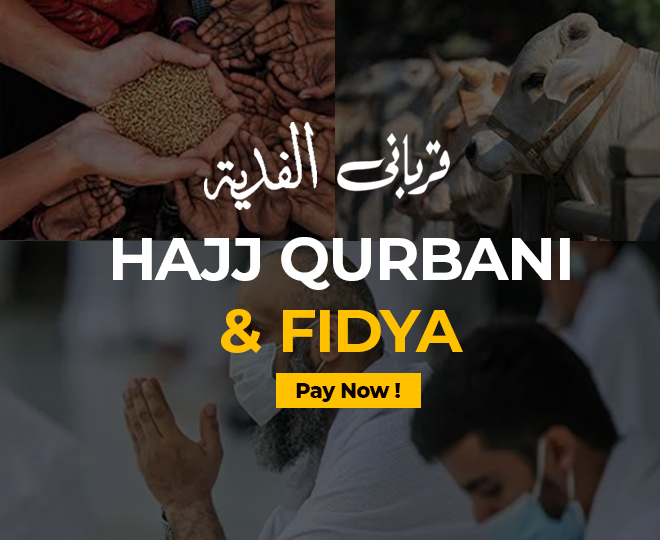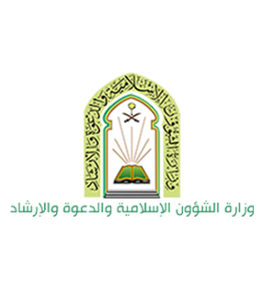Embracing the Blessings: The Importance of the First Ten Days of Dhul Hijjah
The first ten days of Dhul Hijjah hold profound significance in the Islamic calendar, offering believers a unique opportunity for spiritual growth and renewal. Let’s delve into the importance of these sacred days through key points:
- Emphasis on Righteous Deeds:
The profound emphasis placed on righteous deeds during the first ten days of Dhul Hijjah stems from the teachings of the Prophet Muhammad (peace be upon him). His statement, highlighting these days as particularly beloved to Allah for righteous actions, underscores the unique spiritual significance attached to this period.
During these blessed days, Muslims are encouraged to intensify their acts of worship, obedience, and devotion. This can take various forms, including performing additional prayers, reciting Qur’an, engaging in supplication (du’a), and practicing self-restraint and mindfulness. The Prophet’s teachings remind believers of the unparalleled opportunity presented by these days to earn the pleasure of Allah and attain spiritual elevation.
The emphasis on righteous deeds serves as a reminder of the transformative power of sincere acts of worship. By dedicating oneself to acts of piety and obedience during these sacred days, believers not only strengthen their relationship with Allah but also purify their hearts and souls. It is through the consistent practice of righteousness that individuals nurture their faith and cultivate a deeper sense of spiritual fulfillment.
Moreover, the emphasis on righteous deeds during the first ten days of Dhul Hijjah reflects the holistic nature of Islam, which encompasses both individual devotion and communal welfare. By engaging in acts of charity, kindness, and service towards others, believers embody the values of compassion and social responsibility ingrained within the Islamic faith.
Ultimately, the emphasis on righteous deeds during the first ten days of Dhul Hijjah serves as a catalyst for personal growth and spiritual renewal. It is a time for believers to reflect on their faith, strive for self-improvement, and align their actions with the teachings of Islam. By embracing the opportunity to engage in acts of worship and obedience, Muslims reaffirm their commitment to their Creator and draw closer to the path of righteousness and piety.
- Fasting as a Sunnah:
The practice of fasting during the first ten days of Dhul Hijjah, in accordance with the Sunnah of the Prophet Muhammad (peace be upon him), holds profound significance in the Islamic tradition. This voluntary act of devotion is not only a reflection of obedience to the teachings of the Prophet but also a means of drawing closer to Allah and attaining spiritual purification.
Following the example set by the Prophet Muhammad, Muslims are encouraged to observe fasting throughout these sacred days, with particular emphasis on the Day of Arafah. The Day of Arafah, the 9th day of Dhul Hijjah, holds immense significance as pilgrims performing Hajj gather on the plains of Arafah to supplicate to Allah and seek His forgiveness. Fasting on this day is highly recommended, as it carries the potential to expiate sins and earn divine mercy.
Fasting during the first ten days of Dhul Hijjah serves as a spiritual preparation for the journey of Hajj and Eid-ul-Adha. It is a time for believers to engage in acts of self-discipline, restraint, and reflection, thereby purifying their hearts and souls in anticipation of the forthcoming celebrations and rituals. By abstaining from food, drink, and worldly desires, Muslims demonstrate their commitment to prioritizing spiritual growth and devotion.
Moreover, fasting during these blessed days serves as a reminder of the blessings bestowed upon believers and the need for gratitude and humility. It prompts individuals to reflect on the transient nature of worldly pleasures and the importance of cultivating a deeper connection with the divine. Through fasting, Muslims cultivate mindfulness, humility, and empathy towards those less fortunate, fostering a greater sense of compassion and solidarity within the community.
In essence, fasting during the first ten days of Dhul Hijjah is a manifestation of devotion, piety, and obedience to Allah. It is a means of seeking forgiveness, purifying the soul, and preparing oneself for the spiritual journey ahead. By following the example of the Prophet Muhammad and observing fasting during these sacred days, believers reaffirm their commitment to their faith and embark on a path of spiritual renewal and enlightenment.
- Reflection on Hajj:
The convergence of the first ten days of Dhul Hijjah with the annual pilgrimage of Hajj presents a unique opportunity for Muslims worldwide to engage in profound reflection and contemplation. This period serves as an ideal time to delve into the rituals, significance, and history of Hajj, thereby deepening one’s understanding of this fundamental pillar of Islam and its enduring relevance to contemporary society.
Hajj, the sacred pilgrimage to the holy city of Makkah, holds immense spiritual significance in the Islamic faith. It is a journey that traces back to the time of Prophet Ibrahim (Abraham) and his family, symbolizing unwavering faith, sacrifice, and submission to the will of Allah. The rituals performed during Hajj, from circumambulating the Ka’bah to stoning the pillars of Jamarat, carry profound symbolism and spiritual significance, reflecting the timeless principles of unity, equality, and devotion.
During the first ten days of Dhul Hijjah, Muslims are encouraged to immerse themselves in the study and contemplation of Hajj, thereby enriching their understanding of this sacred pilgrimage. This can take various forms, including reading literature on the history and significance of Hajj, listening to lectures by scholars and experts, and engaging in discussions with fellow believers. By deepening their knowledge and appreciation of Hajj, individuals gain a deeper insight into the spiritual dimensions of Islam and its universal message of peace, justice, and compassion.
Moreover, reflecting on Hajj during the first ten days of Dhul Hijjah serves as a reminder of the timeless values and principles embodied by this sacred journey. It prompts believers to reflect on the lessons of humility, sacrifice, and solidarity exemplified by the pilgrims who embark on this spiritual odyssey. Through their collective rituals and supplications, Hajj pilgrims reaffirm their commitment to their faith and forge bonds of brotherhood and sisterhood that transcend geographic, cultural, and linguistic boundaries.
Furthermore, the reflection on Hajj during the first ten days of Dhul Hijjah instills a sense of reverence and gratitude for the blessings bestowed upon believers. It reminds individuals of the privilege of being able to perform Hajj and the responsibility to uphold the values and teachings of Islam in their daily lives. By internalizing the lessons of Hajj, Muslims are inspired to emulate the spirit of devotion, selflessness, and piety embodied by the pilgrims, thereby enriching their own spiritual journey and deepening their connection with Allah.
In essence, the reflection on Hajj during the first ten days of Dhul Hijjah is a transformative experience that allows believers to reconnect with the core principles of their faith and draw inspiration from the sacred traditions of Islam. It is a time for introspection, learning, and spiritual growth, as individuals strive to emulate the example set by the Prophet Ibrahim and the countless pilgrims who have journeyed to Makkah throughout the ages. By embracing the lessons of Hajj, Muslims renew their commitment to their faith and embark on a path of spiritual renewal and enlightenment.
- Engagement in Acts of Charity:
The first ten days of Dhul Hijjah serve as a poignant reminder of the importance of charity and compassion in Islam. Believers are encouraged to elevate their charitable deeds during this auspicious period, embodying the spirit of generosity and selflessness exemplified by the Prophet Muhammad (peace be upon him).
Charity (sadaqah) occupies a central place in Islamic teachings, serving as a means of purifying wealth, seeking the pleasure of Allah, and alleviating the suffering of those in need. During the first ten days of Dhul Hijjah, Muslims are urged to increase their giving, whether through financial contributions, acts of kindness, or voluntary service to the community. By extending a helping hand to the less fortunate, believers emulate the noble example set by the Prophet Muhammad, who was renowned for his boundless generosity and compassion towards others.
The act of giving charity during the first ten days of Dhul Hijjah holds profound spiritual significance. It is a demonstration of gratitude for the blessings bestowed upon individuals and a recognition of the responsibility to share those blessings with others. By channeling their wealth and resources towards charitable causes, Muslims fulfill their duty to uphold the principles of social justice and solidarity within the community.
Moreover, engaging in acts of charity during these blessed days serves as a means of seeking purification and forgiveness from Allah. It is believed that acts of charity have the power to expiate sins, cleanse the soul, and draw believers closer to their Creator. By prioritizing the needs of the less fortunate and demonstrating compassion towards others, Muslims cultivate a sense of humility, empathy, and spiritual fulfillment.
Furthermore, the first ten days of Dhul Hijjah provide an opportune moment for Muslims to reflect on the true essence of charity and its transformative impact on society. Through their charitable contributions, believers contribute to the welfare and empowerment of marginalized individuals and communities, thereby fostering a more equitable and compassionate society.
In essence, the engagement in acts of charity during the first ten days of Dhul Hijjah embodies the core values of Islam and reflects the teachings of compassion, generosity, and social responsibility. It is a time for believers to reaffirm their commitment to serving humanity and upholding the principles of justice and compassion in their daily lives. By embracing the spirit of charity, Muslims enrich their own spiritual journey and contribute to the collective welfare of society, thereby fulfilling the timeless teachings of their faith.
- Opportunity for Spiritual Reflection:
In the midst of life’s hustle and bustle, the first ten days of Dhul Hijjah provide a sacred sanctuary for Muslims to pause, reflect, and reconnect with their spiritual essence. This period of introspection serves as a poignant reminder of the transient nature of life and the imperative to prioritize spiritual growth amidst the distractions of the world.
In today’s fast-paced society, where demands and distractions abound, it is all too easy to become consumed by worldly pursuits and material desires. The first ten days of Dhul Hijjah offer a respite from the noise and chaos of daily life, inviting believers to turn inward and contemplate the deeper meaning and purpose of their existence. It is a time to reassess priorities, realign intentions, and cultivate a deeper sense of spiritual awareness and mindfulness.
Central to this process of spiritual reflection is the act of seeking forgiveness and repentance from Allah. The first ten days of Dhul Hijjah present an opportune moment for believers to acknowledge their shortcomings, seek forgiveness for past transgressions, and strive for spiritual purification and renewal. Through sincere repentance and supplication, Muslims reaffirm their commitment to righteousness and embark on a journey of inner transformation and growth.
Moreover, the first ten days of Dhul Hijjah serve as a time for believers to renew their commitment to Allah and strengthen their bond of devotion and obedience. It is a period of reawakening and renewal, wherein individuals recommit themselves to the principles and teachings of Islam, seeking to deepen their relationship with their Creator and live a life of piety and righteousness.
The act of spiritual reflection during the first ten days of Dhul Hijjah is not limited to individual introspection; it also extends to communal worship and engagement. Muslims are encouraged to come together in prayer, remembrance, and study, fostering a sense of unity and solidarity within the community. Through collective acts of worship and devotion, believers draw strength and inspiration from one another, reinforcing their shared commitment to their faith and values.
Furthermore, the first ten days of Dhul Hijjah serve as a reminder of the blessings bestowed upon believers and the imperative to express gratitude for these blessings. By pausing to reflect on the countless favors and mercies of Allah, Muslims cultivate a spirit of thankfulness and appreciation, recognizing the abundance of blessings that surround them.
In essence, the first ten days of Dhul Hijjah offer a precious opportunity for spiritual reflection, growth, and renewal. It is a time to reconnect with one’s faith, seek forgiveness, and rekindle the flame of devotion within the heart. Through sincere introspection and devotion, believers can navigate the complexities of life with clarity, purpose, and resilience, drawing closer to Allah and His infinite mercy.
- Unity and Solidarity:
The observance of Dhul Hijjah, particularly during the pilgrimage of Hajj, serves as a powerful catalyst for fostering unity and solidarity among Muslims worldwide. As millions of believers from diverse backgrounds and cultures converge upon the holy city of Makkah, they participate in a collective journey of faith and devotion that transcends geographical, linguistic, and cultural boundaries.
Hajj, the fifth pillar of Islam, represents the ultimate expression of unity and solidarity within the Muslim ummah (community). Regardless of nationality, ethnicity, or social status, pilgrims embark on the sacred pilgrimage with a singular purpose: to fulfill their religious obligation and seek the pleasure of Allah. This shared commitment to faith and obedience unites believers in a profound bond of brotherhood and sisterhood, affirming the timeless teachings of Islam regarding the equality and dignity of all human beings.
The experience of Hajj exemplifies the principle of “one Ummah,” whereby Muslims are bound together by their common belief in the Oneness of Allah and the prophethood of Muhammad (peace be upon him). As pilgrims perform the rites of Hajj, including Tawaf (circumambulation of the Kaaba), Sa’i (the ritual walk between the hills of Safa and Marwa), and Wuquf (standing in Arafat), they bear witness to the universality and inclusivity of Islam.
Moreover, the observance of Dhul Hijjah extends beyond the physical pilgrimage of Hajj to encompass the entire Muslim community worldwide. Even those who do not perform Hajj participate in the spiritual significance of these days through acts of worship, fasting, and charitable deeds. This collective engagement with the rituals and practices of Dhul Hijjah reinforces the sense of unity and solidarity among Muslims, irrespective of their geographical location or circumstances.
The sense of unity and solidarity fostered by the observance of Dhul Hijjah extends beyond the confines of religious practice to encompass broader social and humanitarian concerns. Muslims are reminded of their shared responsibility to promote justice, compassion, and dignity for all members of society, regardless of their faith or background. Through acts of charity, service, and advocacy, believers demonstrate their commitment to upholding the values of Islam and addressing the pressing challenges facing humanity.
In essence, the observance of Dhul Hijjah serves as a powerful testament to the enduring unity and solidarity of the Muslim ummah. It is a time for believers to reaffirm their shared faith, values, and aspirations, transcending the barriers of language, culture, and nationality. Through their collective worship, devotion, and service to humanity, Muslims demonstrate the transformative potential of unity and solidarity in building a more just, compassionate, and harmonious world.
- Time for Family Learning and Bonding:
The first ten days of Dhul Hijjah provide families with a unique opportunity to come together and engage in educational activities that deepen their understanding of Hajj and Islamic traditions. This period of heightened spirituality offers parents a chance to instill essential values and teachings of Islam in their children while fostering a sense of unity and connection within the family unit.
Educational activities centered around Hajj serve as a gateway for children to learn about the significance, rituals, and history of the sacred pilgrimage. Parents can utilize a variety of engaging methods to convey this knowledge, including storytelling, interactive discussions, and multimedia presentations. Through these educational initiatives, children gain a deeper appreciation for their faith and heritage, cultivating a sense of pride and identity as Muslims.
Craft projects provide a hands-on approach to learning about Hajj, allowing children to express their creativity while reinforcing key concepts and symbols associated with the pilgrimage. Families can collaborate on building models of the Kaaba, constructing replicas of the hills of Safa and Marwa, or creating artwork depicting scenes from the life of Prophet Ibrahim and his family. These creative endeavors not only enhance children’s understanding of Hajj but also strengthen family bonds through shared experiences and collaborative learning.
Additionally, watching live broadcasts of Hajj proceedings serves as a powerful educational tool, offering families a firsthand glimpse into the rituals and practices of the pilgrimage. Children can witness the awe-inspiring scenes of millions of pilgrims converging upon the holy city of Makkah, performing Tawaf around the Kaaba, and standing in prayer on the plains of Arafat. These live broadcasts provide a vivid and immersive experience that brings the spiritual significance of Hajj to life, igniting curiosity and fostering a sense of connection to the global Muslim community.
Furthermore, storytelling serves as a time-honored tradition for transmitting knowledge and moral lessons from one generation to the next. Parents can narrate captivating tales from the life of Prophet Ibrahim, recounting his unwavering faith, devotion, and sacrifice as exemplified in the story of Hajj. Through these stories, children learn valuable lessons about faith, resilience, and the importance of submission to the will of Allah, inspiring them to emulate the noble qualities of the prophets in their own lives.
In essence, the first ten days of Dhul Hijjah provide families with a precious opportunity to bond, learn, and grow together in their faith. By engaging in educational activities about Hajj, parents impart essential teachings of Islam to their children, nurturing a love for their religion and fostering a sense of unity and belonging within the family. These shared experiences create lasting memories and reinforce the importance of faith, family, and tradition in the lives of Muslims.
- Preparation for Eid:
The first ten days of Dhul Hijjah serve as a period of spiritual preparation and anticipation for the joyous celebration of Eid-ul-Adha, the Festival of Sacrifice. By actively engaging in acts of worship, charity, and reflection during this sacred timeframe, Muslims not only fulfill their religious obligations but also deepen their spiritual connection and readiness for the festivities that lie ahead.
Engaging in acts of worship during the first ten days of Dhul Hijjah allows Muslims to fortify their spiritual resolve and strengthen their bond with Allah. Through increased prayers, recitation of Qur’an, and remembrance (dhikr) of Allah, believers immerse themselves in acts of devotion that purify the soul and elevate the spirit. This heightened spiritual engagement serves as a foundation for the joy and gratitude that characterize the celebration of Eid-ul-Adha.
Furthermore, the emphasis on acts of charity during the first ten days of Dhul Hijjah enables Muslims to embody the values of compassion and generosity exemplified by the Prophet Muhammad (peace be upon him). By giving generously to those in need, Muslims express their gratitude for the blessings bestowed upon them and fulfill the prophetic tradition of sharing their wealth with others. This spirit of altruism and benevolence sets the stage for the spirit of giving and sharing that permeates the atmosphere of Eid-ul-Adha.
Moreover, the first ten days of Dhul Hijjah provide an invaluable opportunity for introspection and self-reflection. Muslims are encouraged to assess their spiritual progress, seek forgiveness for past shortcomings, and renew their commitment to righteousness and piety. By engaging in sincere repentance and supplication, believers purify their hearts and minds, paving the way for a deeper spiritual experience and connection with Allah during Eid-ul-Adha.
As the culmination of the Hajj pilgrimage and the commemoration of Prophet Ibrahim’s willingness to sacrifice his son in obedience to Allah’s command, Eid-ul-Adha holds profound significance in the Islamic faith. By making the most of the first ten days of Dhul Hijjah, Muslims prepare themselves spiritually and emotionally to partake in the joyous festivities and rituals associated with Eid-ul-Adha. From the performance of Eid prayers to the sharing of sacrificial meat and the exchange of greetings and gifts, believers come together in celebration of their faith and gratitude for Allah’s mercy and blessings.
In essence, the preparation for Eid-ul-Adha during the first ten days of Dhul Hijjah is a holistic endeavor that encompasses acts of worship, charity, and self-reflection. By immersing themselves in these spiritual practices, Muslims cultivate a sense of reverence, gratitude, and readiness for the joyous celebration of Eid-ul-Adha, thereby enriching their spiritual experience and strengthening their bond with their Creator and fellow believers.
Conclusion
In conclusion, the first ten days of Dhul Hijjah stand as a sacred period in the Islamic calendar, rich with opportunities for spiritual growth, reflection, and renewal. Through the emphasis on righteous deeds, fasting as a Sunnah, reflection on Hajj, engagement in acts of charity, spiritual reflection, unity and solidarity, family learning and bonding, and preparation for Eid, believers are invited to deepen their connection with Allah, strengthen their bonds with their fellow humans, and enrich their understanding of Islamic teachings.
These blessed days serve as a reminder of the timeless values and principles embodied by Islam, encouraging believers to embody compassion, humility, and devotion in their daily lives. By immersing themselves in acts of worship, charity, and reflection, Muslims reaffirm their commitment to their faith and strive to live in accordance with the teachings of the Prophet Muhammad (peace be upon him).
As the first ten days of Dhul Hijjah draw to a close, let us carry forward the lessons learned and the blessings received into the days and weeks ahead. May we continue to seek Allah’s guidance and mercy, emulate the example of the Prophet Muhammad, and strive to be agents of positive change and compassion in our communities and the world at large. Through our collective efforts and steadfast devotion, may we continue to uphold the principles of justice, mercy, and love that lie at the heart of Islam, fostering unity, peace, and harmony in the world.



















